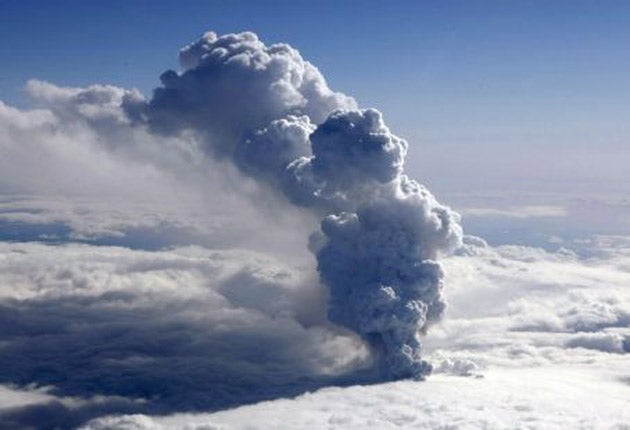The Week In Radio: When the appliance of science is hot stuff

Your support helps us to tell the story
From reproductive rights to climate change to Big Tech, The Independent is on the ground when the story is developing. Whether it's investigating the financials of Elon Musk's pro-Trump PAC or producing our latest documentary, 'The A Word', which shines a light on the American women fighting for reproductive rights, we know how important it is to parse out the facts from the messaging.
At such a critical moment in US history, we need reporters on the ground. Your donation allows us to keep sending journalists to speak to both sides of the story.
The Independent is trusted by Americans across the entire political spectrum. And unlike many other quality news outlets, we choose not to lock Americans out of our reporting and analysis with paywalls. We believe quality journalism should be available to everyone, paid for by those who can afford it.
Your support makes all the difference.One question guaranteed not to come up in the leaders' debate tonight is "What will happen to BBC radio under your leadership?" But even if it did, the answer from all three would be so similar that they might as well be reading from the same cue card. Despite testing times ahead, with huge question marks over the licence fee and the scope of the Corporation's activities, the BBC would get the same kidglove treatment as the NHS or the Pope. Gordon Brown would like the BBC "independent" and Nick Clegg wants it "securely funded". Even the Conservatives, who want the licence fee supervised by the National Audit Office and the BBC Trust abolished, talk of a "strong and independent BBC". And no one would mention the World Service, which rarely gets the recognition it deserves, despite being our greatest cultural export after Shakespeare.
This week, the World Service's Science in Action was doing volcanoes. In general, radio has had a good volcano. While on TV the awesome power of nature dwindled rapidly into Brits in queues, moaning about mini-cabs from the Costa Brava to Slough, radio has made vulcanologists of us all. Costing the Earth did a volcano special and You and Yours devoted an hour to every conceivable issue linked to the eruption. Science in Action had an expert who re-affirmed that the threat to planes from volcanic ash had been genuine. "Can we do anything with jet engines to make them less susceptible?" asked Jon Stewart. "No," said the expert simply, the way experts do. The show has that fabulous quality among science shows of being perfectly willing to voice the unpopular. Witness its report on brain-training computer games, which found that even training 30 hours in six weeks produced no improvements in cognitive function and only made you better at playing brain training games. Ha!
Science is currently being "celebrated" by BBC radio, where this year's Reith Lectures are being given by the President of the Royal Society and to this end Material World announced the finalists of its amateur scientist competition. Aimed at bringing science to a human level, all the finalists were charmingly unpretentious. They included Ruth Brooks, who has dabbed her garden snails with nail polish to discover how far away she needs to dump them so they never return. And there was a croupier from Cheshire, who wants to work out why at gigs, the greatest crowd pressure is not at the front, but three rows back. This is the kind of thing you never even realised was science, but just as you were about to submit your own theory about three buses coming at once, you found there were limits. One guy wanted to put a mannequin in his art gallery window to measure "whether the illusion of a presence improved footfall" but the judges weren't having it. "This looks like really silly science, like does Kylie Minogue drink more coffee than her sister Dannii? One of those tabloidy science things!"
Unlike scientists, politicians really hate saying unpopular things, but as Simon Schama pointed out in his A Point of View, it was not always so. A lot of people have a Marmite reaction to Schama, but I admire his erudite, slightly camp delivery and find the scale of his historical perspective exhilarating. This week, he was talking, appropriately, about Parliamentary reform in the early 1830s when the Whig opposition was pursuing social change to avert revolution. The star of the debate was Lord Macaulay, who raged against Parliamentary corruption, warning that without reform Britain faced "the wreck of laws, the confusion of social rank, the spoilation of property and the dissolution of social order". Macaulay won, of course, with such stirring stuff. But it made you think, what wouldn't you give today for a leaders' debate like that?
Join our commenting forum
Join thought-provoking conversations, follow other Independent readers and see their replies
Comments